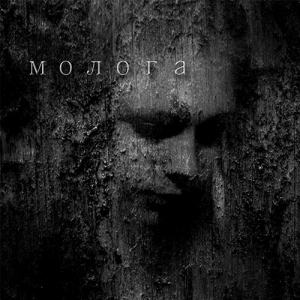
Nowadays it’s quite difficult to create something unique and, at the same time, something great. Some renewing acts bring stuff that simply sucks, that is filled with exaggeration, or that lacks cohesion or a vision. Besides, in mean time it might seem that we’ve reach all borders of the sonic spectrum – since Harsh Noise Wall or simplistic field recording / sounds of nature are considered being ‘musical styles’ (and hey, you won’t hear me complain), it’s almost unthinkable what’s next to come.
Anyway, this introduction was meant to introduce a (new?) act from the Russian Federation, for they too come up with something quite unheard before. Let’s welcome Rybinsk-based act Mолога (Mologa), named after the river (and ancient village) close to Rybinsk and the river Volga (some free ivanpedia information…). This band consists of members currently or formerly involved with e.g. Oprich (FYI: on April 21st 2016 undersigned published the review for their newest effort, Bетра пьяный мёд), Vo Skorbyah, Den’ Nenavisti and Gribnyye Dozhdi. They make use of elements from all the other bands they’re involved with, as well as quite some new / renewing elements. The lyrics, all in Russian (so do not ask me for the specific content), deal with Slavonic-pagan themes, evidently. And oh yes, the artwork: sober but expressing the beauty of integrity…
Mолога (aka Mologa – indeed a self-titled, or is it untitled, album) lasts for about forty-seven minutes, and it opens with the track Зязюлечка (‘Zyazyulieckha’ or something in this vein). This composition initially combines somewhat evocative female vocals, mouth harp, flute and acoustic guitars – all of them quite weirdly performed – eventually evolving into a blistering apotheosis with so many exceptional details, like mostly crazy voices and the call of a cuckoo. But pay attention, for this weird experience is not meant to be an ironic one, nor some fun project. You surely here the seriousness, the craft of creating mysterious aural rituals. That journey goes on with the second piece, Былинка (‘bylinka’), though this one strongly differs from the opener. After a cacophonous opening sequence (distorted sax, heavily droning guitars, and much more), everything evolves into a Qntal-alike piece of Electronica, yet then again translated into a Folk-definition. Pounding beats interfere smoothly with ethereal ethnic passages, permanently injected by elements from all angles of the musical spectrum. Горе (‘gore’) starts much more integer, with melancholic acoustic instrumentation (guitars, flutes and what else), and with those soft-esoteric voices this might be the most integer piece of the album. Though, here too electronic beats, Trip-Hop elements and Post-Rock details overrule the minimalism of Traditional Folk Music. Mind the intermezzo as from half of the song, being fiercely contrastic to the start of the song (and the last part), for being quite heavy and brutal; let’s call it schizophrenic. With its length of more than ten minutes, Канарейка (‘kanareyka’) is the longest piece on this album. So, you can imagine the vastness of elements in this song. Indeed, every thirty seconds, new aspects appear, combining Folk (quite a general description, but an appropriate one for sure), Trip-Hop, Post-Rock, Electronics, Chill-Out, IDM, Progressive, Classical, Metal and so much more. And I can go on, getting deeper into the heart and spirit of each single track to come, but I guess you might have a clue in mean time. There’s much more to come, yet then again quite intensively seen from a very same point of view.
And that’s where the problem might be. I’m sort of confused. At the one hand I do adore this original approach. Mолога are quite unique and renewing with their specific execution, their own-faced vision on Folk Music. They do cross borders, they invent and reform tradition into a self-created wall of sound. There is a profound cohesion for sure, despite the chaotic mishmash of sonic penetration. At least the fine vocals of singer Inna Michurina (at least, I think she’s the vocalist of the band) are courtesy of that coherent performance.
But then again, and I have to be honest, well… This is not an album meant for everyone. I can imagine that the somewhat apocalyptic and strongly unusual song structures, the sudden eruptions of noises, and the weird mélange of influences and styles, might be too hard to digest for many folks around. I too needed several listens, and even now, after the fourth or fifth one, I have not totally understood and cleared up this album. There are so many layers of sound, so much changes in structure, and such a huge amount in experiments, that it is not a secret that this stuff needs endurance, perseverance and courage to finish it.
But for what it’s worth: I am impressed. Once again Casus Belli Musica come forward with something unique within a dying Folk scene, and without doubt / remorse / feeling of guilt they do confront you with a massive aural blast – and ‘massive aural blast’ has nothing to do with aggression or bruteness, all right – I am referring to the skull-hammering and brain-piercing confusion caused by this stuff. So ignore your mental blinkers and give this material a try, for it’s worth it!
